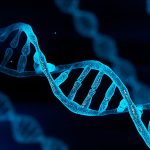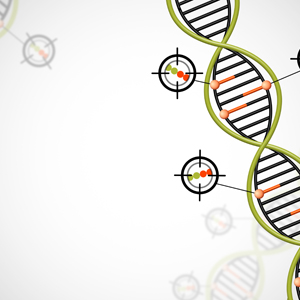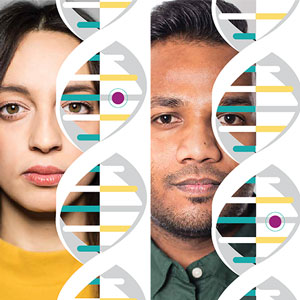Ovarian Cancer
-
Forward Look
A More Targeted PARP InhibitorEarly research suggests treatment could have higher potency and less toxicity for people with BRCA-related cancers.
by Marci A. Landsmann
-
Forward Look
A Different Chemotherapy Approach for Ovarian CancerStudy suggests heated chemotherapy delivered to the abdominal cavity extends survival in advanced ovarian cancer.
by Kris Conner
-
Germline Genetic Testing Lags Behind Guidelines
Low rates of germline genetic testing in cancer patients means information that could affect treatment isn’t available.
by Jon Kelvey
-
Finding the ‘Silent Killer’
Strange symptoms led cancer care nurse Eve Spiegel to an ovarian cancer diagnosis.
by Eve Spiegel
-
Ovarian Cancer: A Quest to Extend Remissions
New treatments aim to lengthen remissions and push back recurrences.
by Erin O’Donnell
-
When Cancer Is in the Family
You've inherited a genetic variant linked to cancer risk. Now what?
by Stephen Ornes
-
Genetic Testing Gaps
Testing for hereditary mutations is increasingly recommended for people with cancer, but recommendations do not always translate into access to testing and appropriate counseling.
by Kate Yandell
-
Survivor Profile
Sharing Her StrengthDiagnosed with two cancers prior to turning 40, Rebecca Esparza uses her voice to advocate for policy changes to help people affected by cancer.
by Lindsey Konkel
-
Medicare Coverage for Next-Generation Sequencing Tests
Multigene panels that rely on next-generation sequencing are increasingly used to test for hereditary cancer risk-related mutations. The federal government aims to expand Medicare coverage for these tests.
by Ashley P. Taylor
-
BRCA: Who Should Be Tested?
Genetic testing for mutations in the BRCA1 and BRCA2 genes creates opportunities for cancer risk reduction. But 25 years after the mutations were discovered, some who could benefit from testing are still left out.
by Sue Rochman














